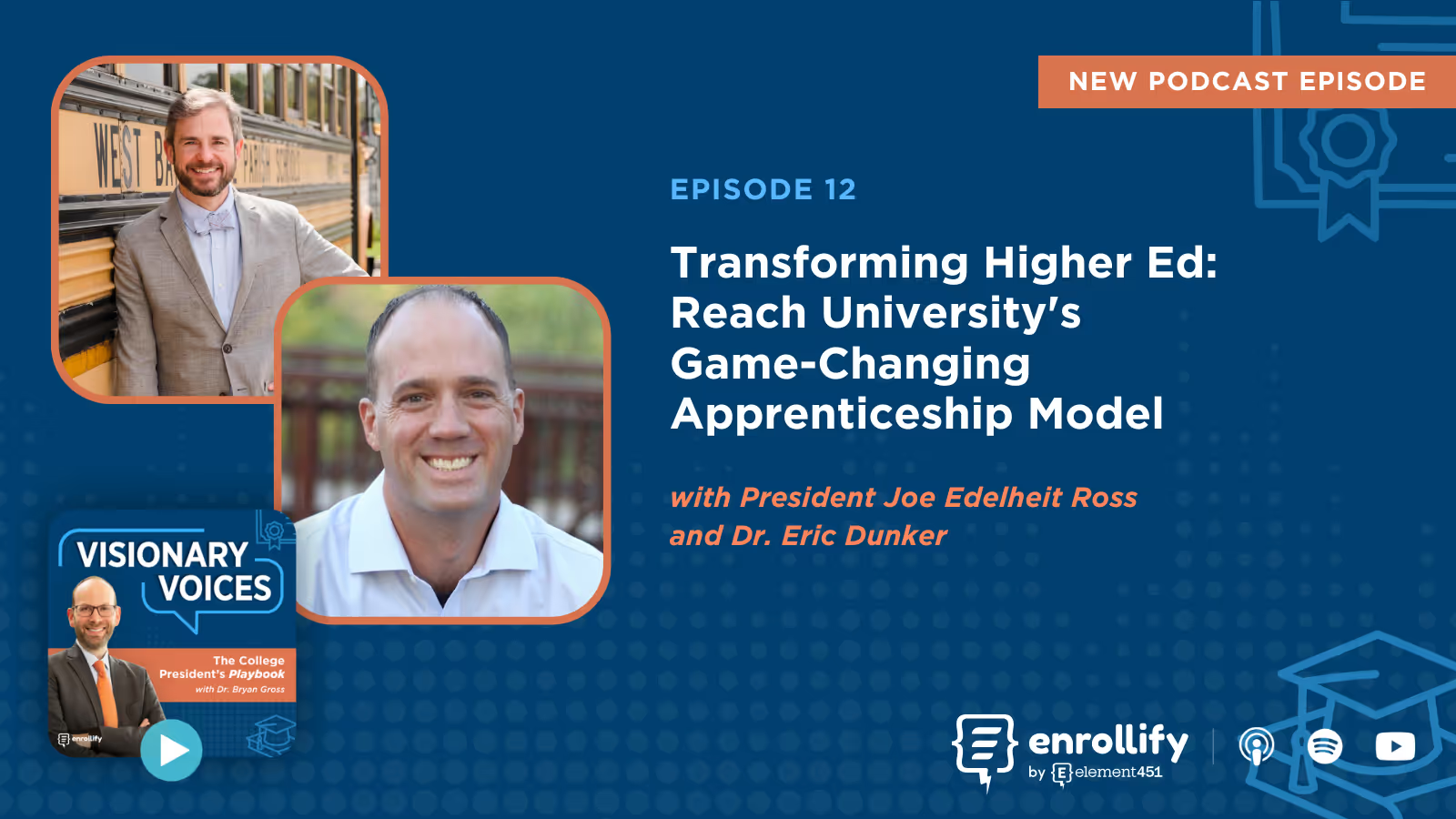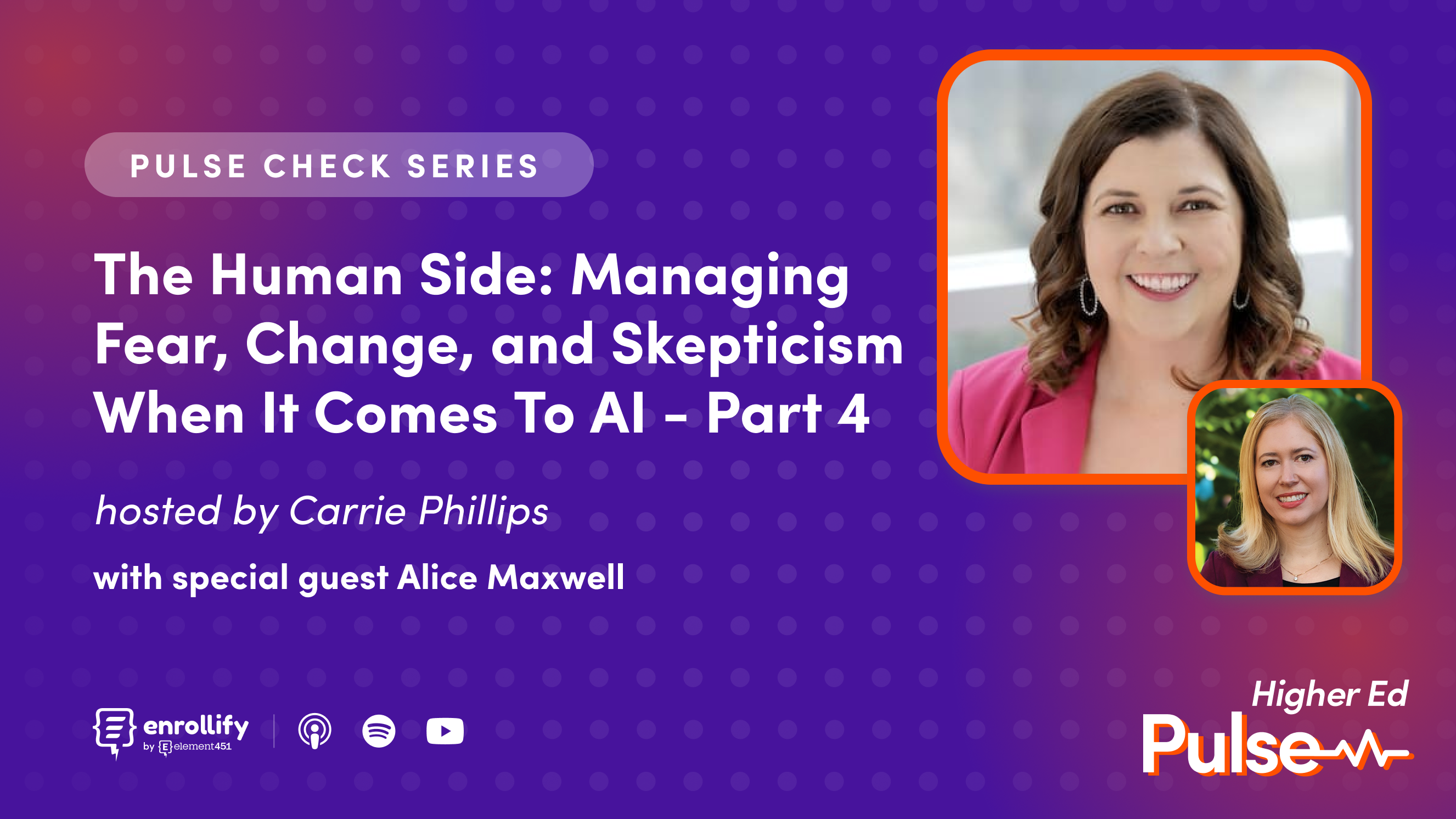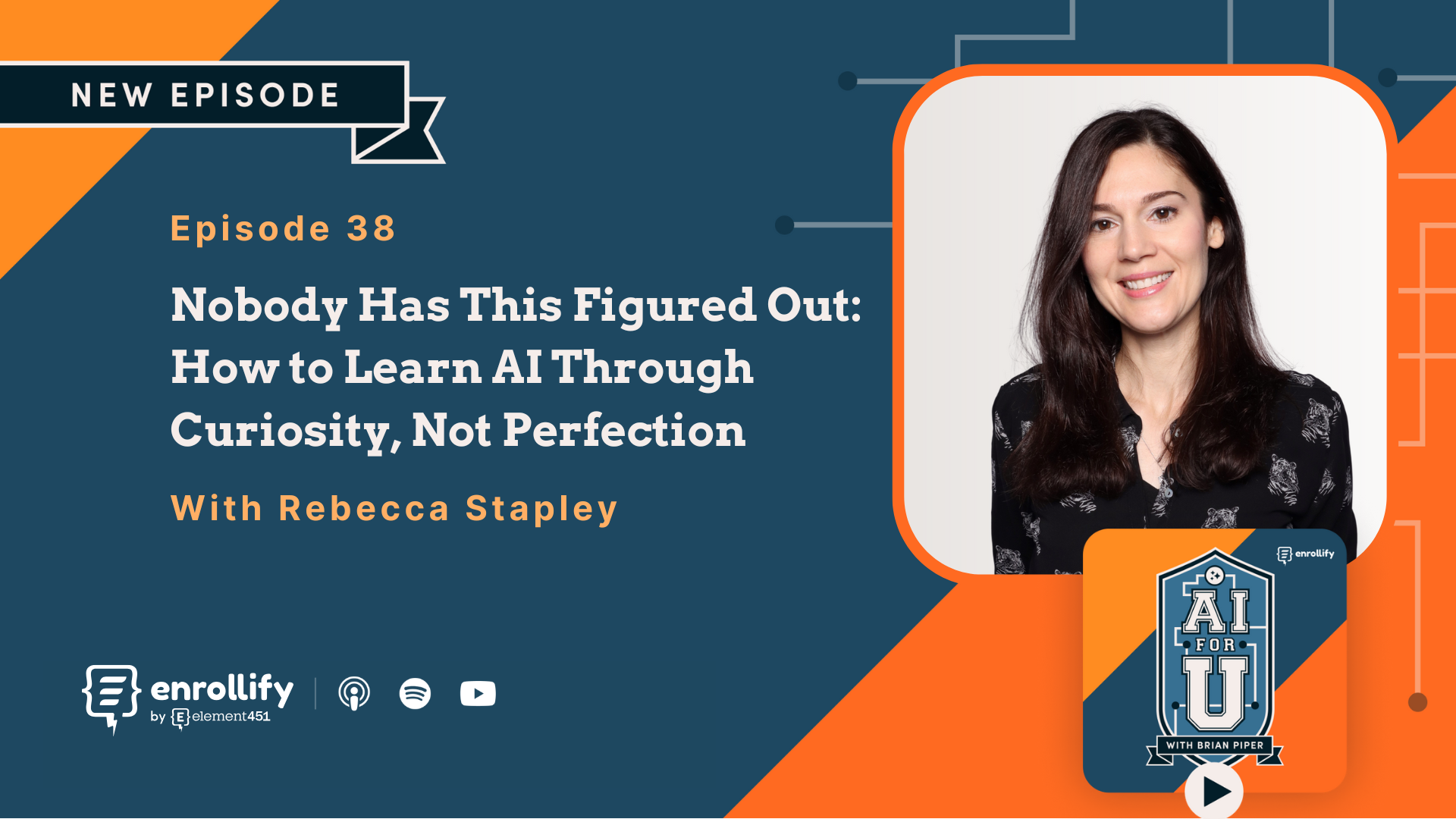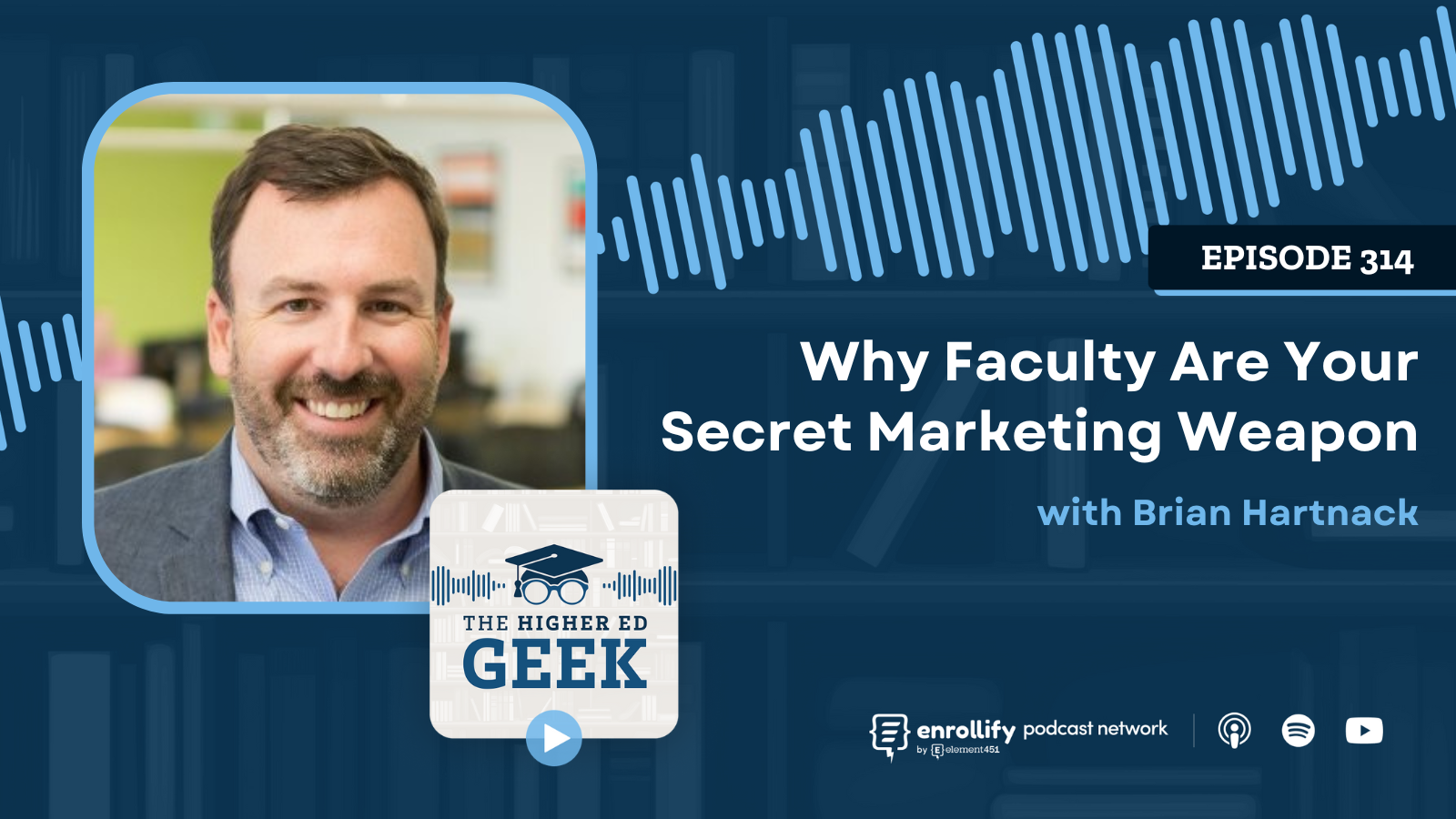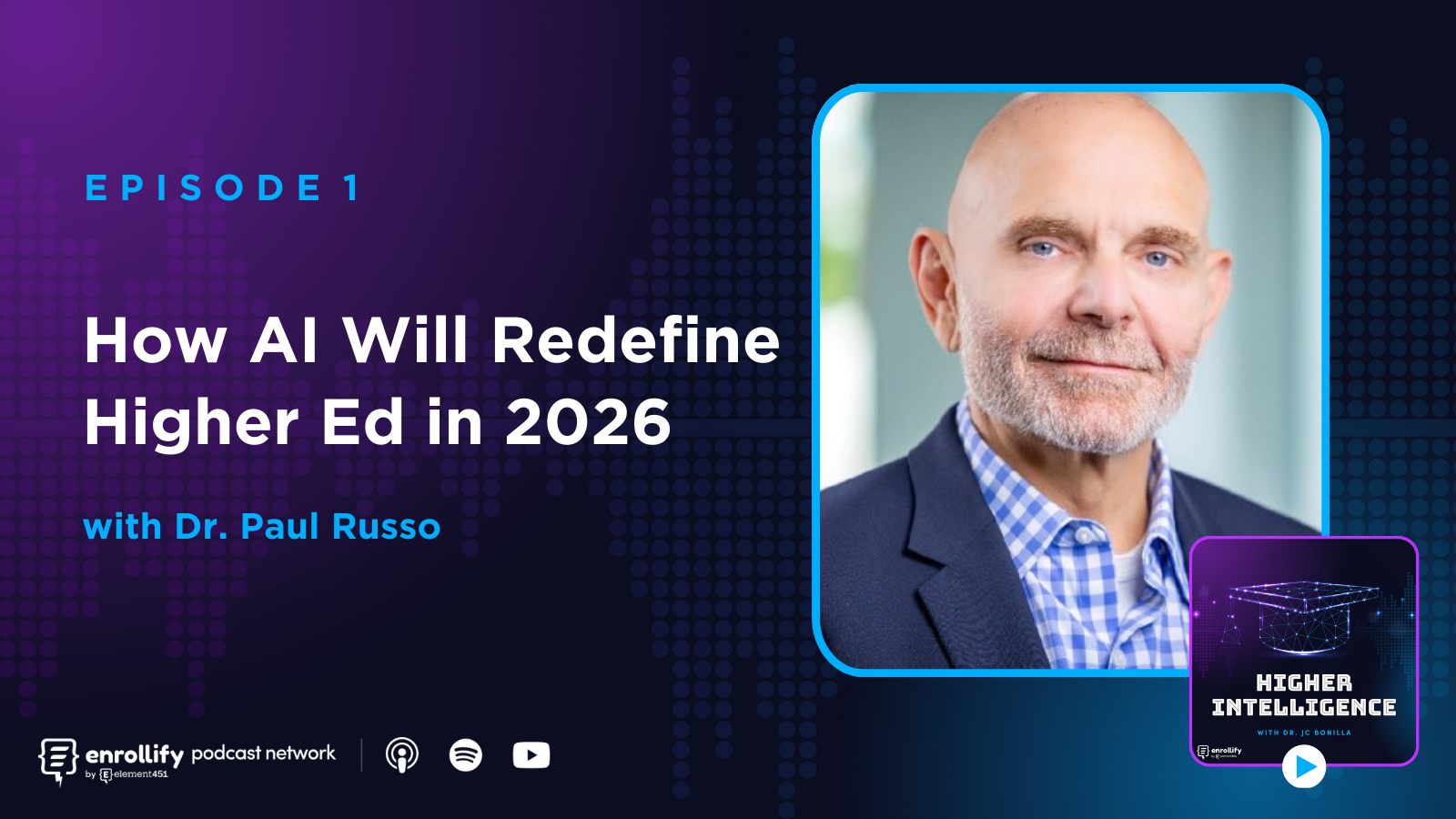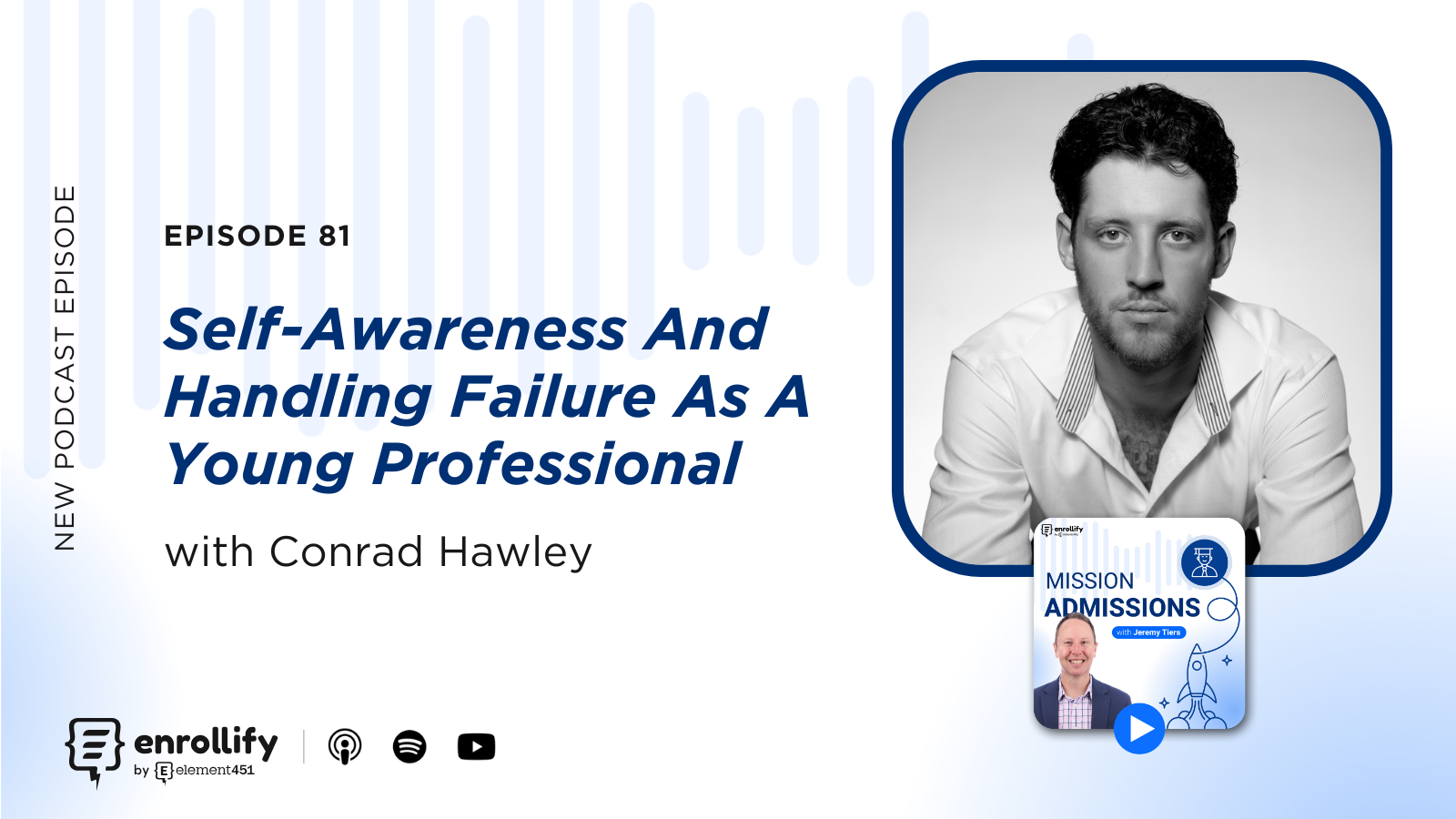About the Episode
About the Episode:
In this episode of Visionary Voices: The College President’s Playbook, Dr. Bryan Gross hosts Joe Ross, President of Reach University, and Dr. Eric Dunker, Chief Executive and Co-Founder of the National Center for the Apprenticeship Degree. They explore how Reach University is transforming higher education by offering a unique apprenticeship degree model that empowers students to earn degrees while working in their communities. Joe and Eric dive into the university’s mission to provide accessible, debt-free education through workplace-based learning. They discuss the benefits of apprenticeship degrees, how Reach University collaborates with employers to upskill workers, and why this model is particularly successful in rural and underserved areas. The episode highlights Reach University’s affordable approach, employer partnerships, and the importance of innovation in higher education. Ross and Dunker also provide advice for college leaders on how to implement similar models at other institutions.
Key Takeaways
- Apprenticeship Degree Model: Reach University’s apprenticeship degree starts with the employer, turning the workplace into a campus and emphasizing skills alongside traditional degree credentials.
- Accessibility and Affordability: Through workplace-based learning, students avoid debt, often paying only $75 monthly after aid and scholarships, making higher education attainable for underserved populations.
- Unique Enrollment Strategy: The B2B2C model at Reach University dramatically reduces enrollment costs, averaging $700 per student by leveraging employer partnerships rather than direct-to-student marketing.
- Impact on Communities: Apprenticeship degrees help fill talent gaps in critical sectors, especially in rural areas, by empowering local, place-bound talent through higher education.
Episode Summary
What is Reach University, and How Did It Start?
Joe Ross introduces Reach University’s unique journey, which began in Oakland, California, as a graduate institute for teachers in 2006. Reach University took on a new mission in 2020 by merging with the Oxford Teachers Academy, bringing together graduate education and undergraduate apprenticeships. This transition solidified its mission to provide accessible and affordable degrees by embedding learning within the workplace itself. Reach’s core goal, as Ross explains, is to turn jobs into degrees, offering a Bachelor of Arts through practical, job-based learning. With over 2,100 candidates, Reach University is making higher education accessible for working adults in underserved communities, helping them advance their careers without taking on significant debt.
How Does the Apprenticeship Degree Model Work?
Eric Dunker breaks down Reach’s “earn-and-learn” apprenticeship model, where education starts with the employer, not the classroom. This approach flips the traditional model by turning the workplace into the campus, helping paraprofessionals and other frontline workers earn degrees that directly apply to their jobs. Each apprenticeship degree program requires three components: an employer with a talent need, a quality instructional provider, and typically an intermediary to help coordinate resources and recruitment. This model makes higher education more relevant and financially attainable, as students learn on the job, gain necessary skills, and pay little to no tuition out of pocket.
The ABCs of the Apprenticeship Degree
Ross shares the “ABCs” that guide the apprenticeship degree model:
- A - Affordability: By minimizing out-of-pocket costs and student debt, Reach University enables students to learn without the financial strain.
- B - Based in the Workplace: Unlike traditional models, the degree journey is centered in the workplace, often with over 70% of learning happening on the job.
- C - Credit for Learning at Work: Students earn credit for on-the-job experiences, integrating real-world skills with academic theory and giving a new level of depth to workplace learning. This means candidates don’t just acquire skills—they also understand the theory behind their practice, making this a true degree, not a watered-down certification.
Impact and Success Stories
The apprenticeship model provides not just economic mobility but life-changing opportunities. Dunker shares a story about a young student from a rural community who joined a cybersecurity apprenticeship with Lockheed Martin. By age 23, he completed a debt-free degree, gained a job with high upward mobility, and transformed his family’s future. These kinds of success stories illustrate the real impact of Reach’s model and its potential for broader application across the U.S.
Overcoming Challenges and Expanding the Model
Ross and Dunker emphasize that the apprenticeship model is scalable, especially in rural or underserved areas, where economic mobility through traditional education is often out of reach. By partnering with local employers, Reach can bring college-level education to places that might otherwise lack access. This unique B2B2C model significantly lowers marketing costs and aligns with Reach University’s mission to create sustainable and scalable educational opportunities.
Connect With Our Host:
About The Enrollify Podcast Network: Visionary Voices: The College President’s Playbook is a part of the Enrollify Podcast Network. If you like this podcast, chances are you’ll like other Enrollify shows too!
Some of our favorites include Higher Ed Pulse and Generation AI.
Enrollify is produced by Element451 — the next-generation AI student engagement platform helping institutions create meaningful and personalized interactions with students. Learn more at element451.com.
Attend the 2025 Engage Summit!
The Engage Summit is the premier conference for forward-thinking leaders and practitioners dedicated to exploring the transformative power of AI in education.
Explore the strategies and tools to step into the next generation of student engagement, supercharged by AI. You'll leave ready to deliver the most personalized digital engagement experience every step of the way.
👉🏻 Register now to secure your spot in Charlotte, NC, on June 24-25, 2025! Early bird registration ends February 1st.







